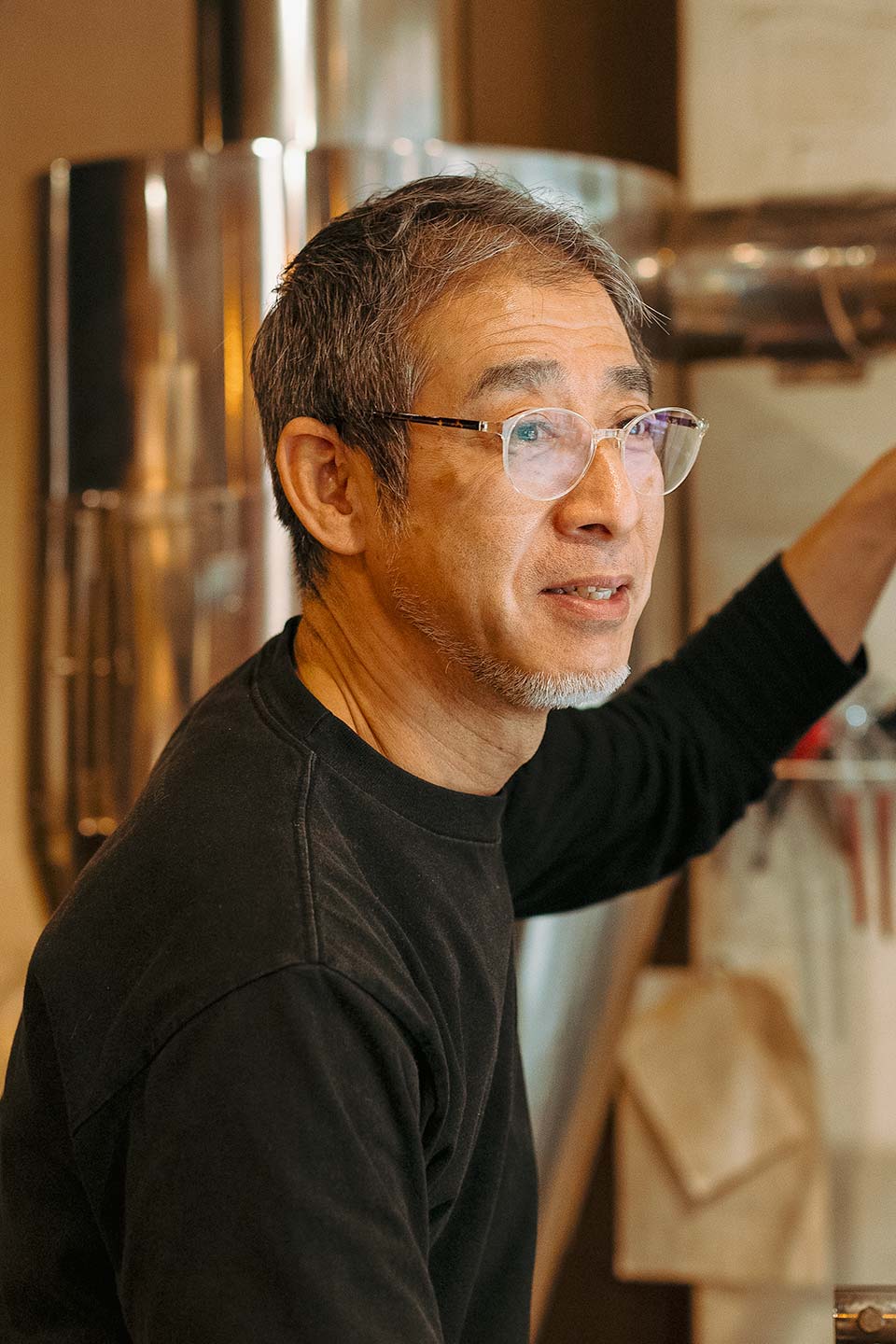
People are Driven by Passion - There’s More Than One Way to Do Business
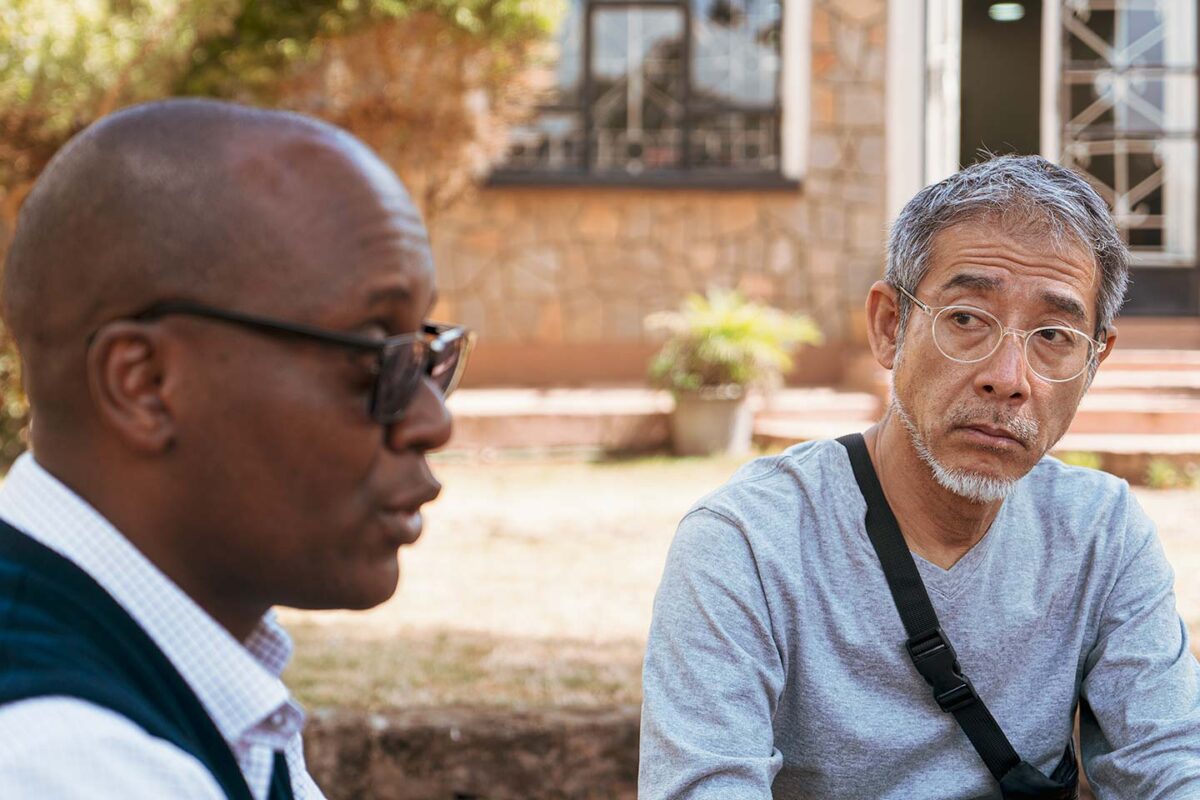
Shoji Furuya, the man behind The Coffee Market, a coffee shop and roastery based out of Osaka that offers a diverse food menu, has always played close attention to his customers’ needs and conducted his business in a way that goes above and beyond to meet their expectations. After a 10-day visit to Tanzania and Kenya, Furuya describes how the opportunity left him with several new perspectives.
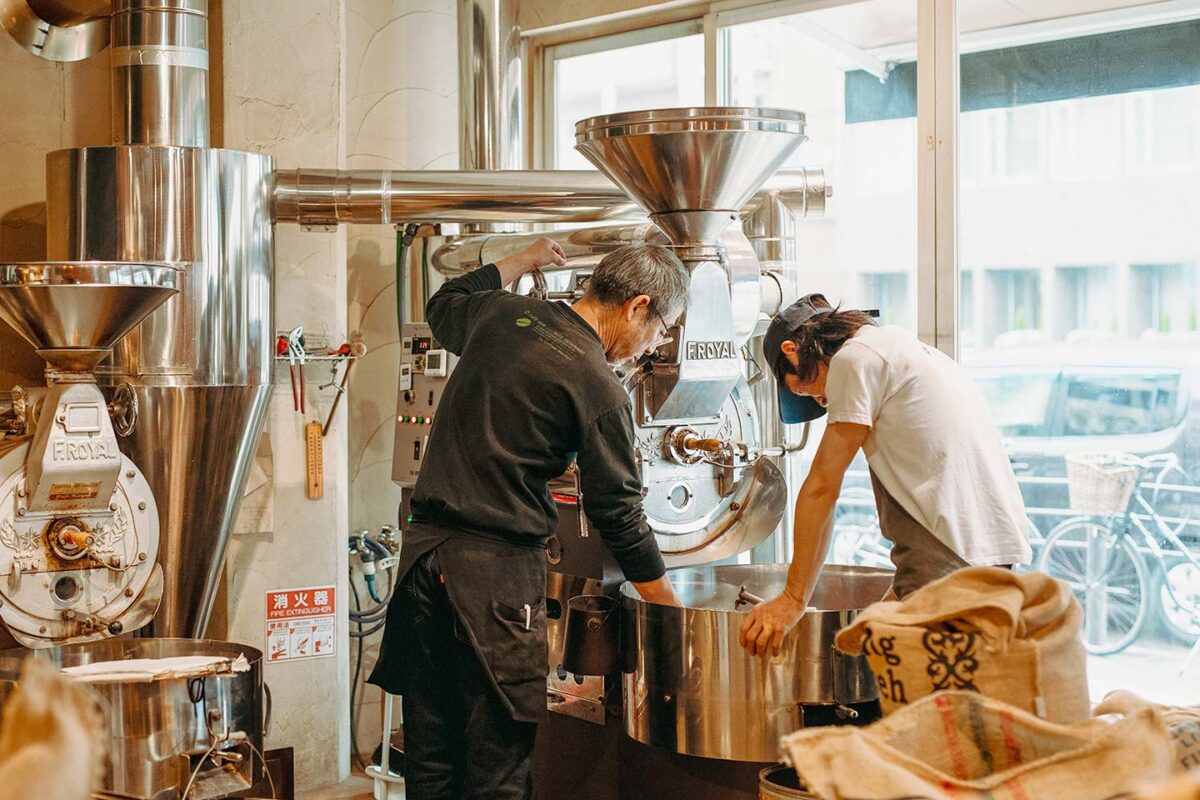
Tanzania – Land of surpassed expectations
Since entering the coffee industry about 35 years ago, I’ve had a pressing desire, or perhaps you could even call it a conviction, to visit an origin country someday. I’d been working with coffee for multiple decades, and yet the only exposure I’d had to the land where it’s grown, how it’s processed, and the overall production process was through pictures and videos.
Of course, it’s not like I was never offered chances to go in the past. I’d previously been invited by several trading companies, but as I’d been handling all the aspects of my business from roasting to wholesaling, and operating The Coffee Market on my own, I hadn’t been able to string together enough time off to make a proper trip.
Since I recently increased my staff and now have trusted employees that can manage the café and roasting operations in my absence, I’d been on the lookout for another chance to finally make a trip overseas. Imagine my delight when I first learned about this amazing opportunity!
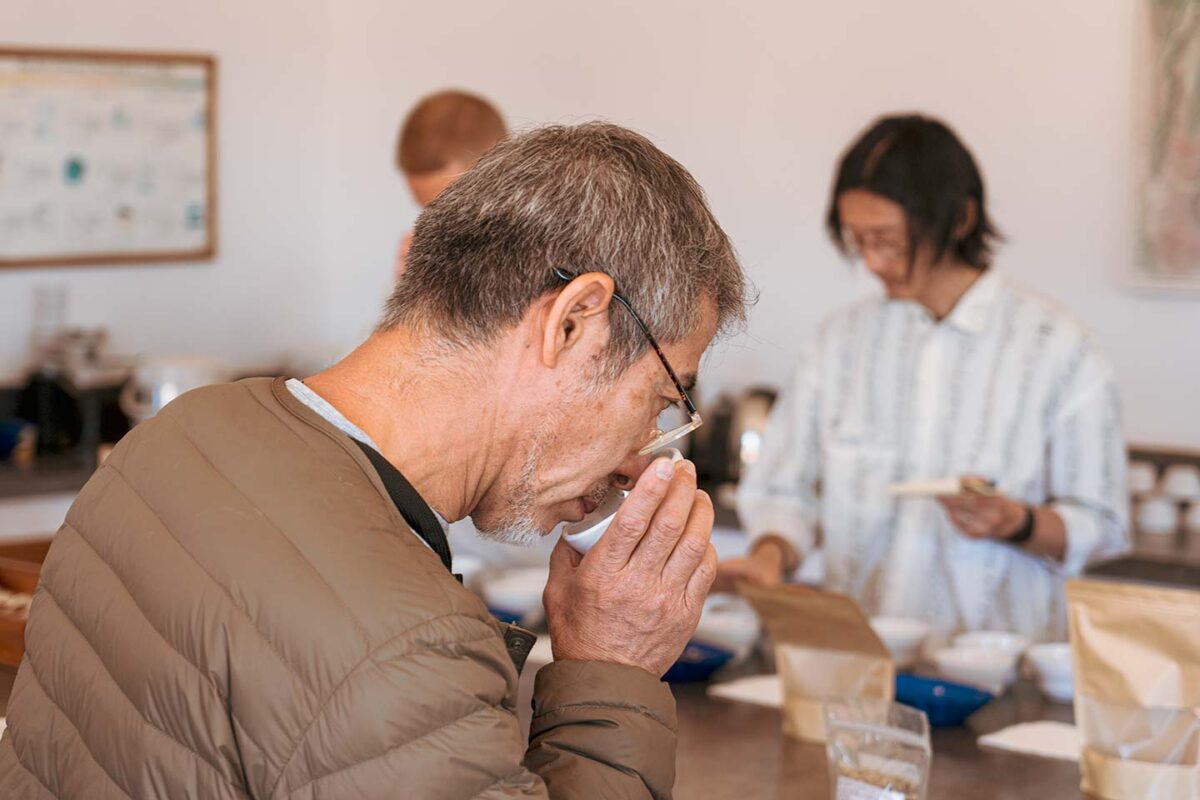
The destination was going to be Tanzania and Kenya, but to be perfectly honest, Kenya was the only thing I could see. I wondered why Tanzania was even included on the schedule; couldn’t a few extra days in Kenya have been added instead? I’d handled green beans from Tanzania for many years, but my feeling was that the products coming out of Kenya were on a much higher level, so I had basically zero expectations going in.
But it was because I’d initially set the bar so low, that the impact of the high-quality coffee we tried during the cupping held at Leon’s farm in Tanzania shook me to my core. The flavor was luxurious with an elegant sweetness, and I couldn’t pick up on any of the negative qualities that can arise from drinking freshly harvested coffee. I was so impressed with the potential of what I was tasting that I was ready to make an offer for all 10 varieties that we tried.
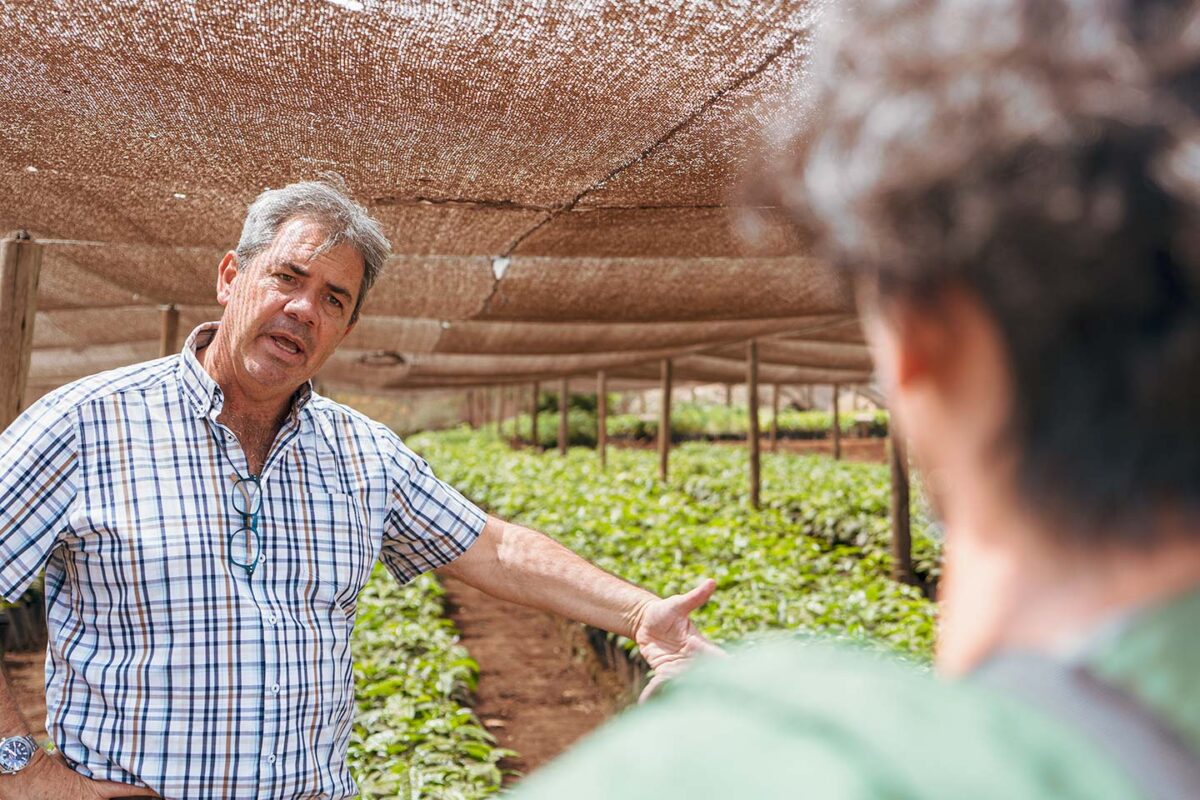
The tidiness of Leon’s farm and the way that he sincerely accepted our cupping comments were more than enough to convince me that this man is the genuine article when it comes to coffee production.
Beyond the excellence of the coffee we were served, I was even more impressed by the attentive hospitality he showed us. To Leon, who has more than 100 employees and deals with business partners all over the world, our group made up only a tiny percentage of potential sales for his company. However, he met us with open arms and made us feel welcome the entire time. One of the biggest reasons I think we were able to make such a deep connection was that we had the opportunity to eat and drink together, which let us have conversations that went beyond the topic of work.
I’m sure that everyone in attendance was strongly motivated to sell as much of Leon’s coffee as possible after how well he treated us. That’s how business works, doesn’t it? Seeing Leon’s dedication to his craft made me want to step up my own game and heightened my awareness of how important it is to increase quality without making any compromises.
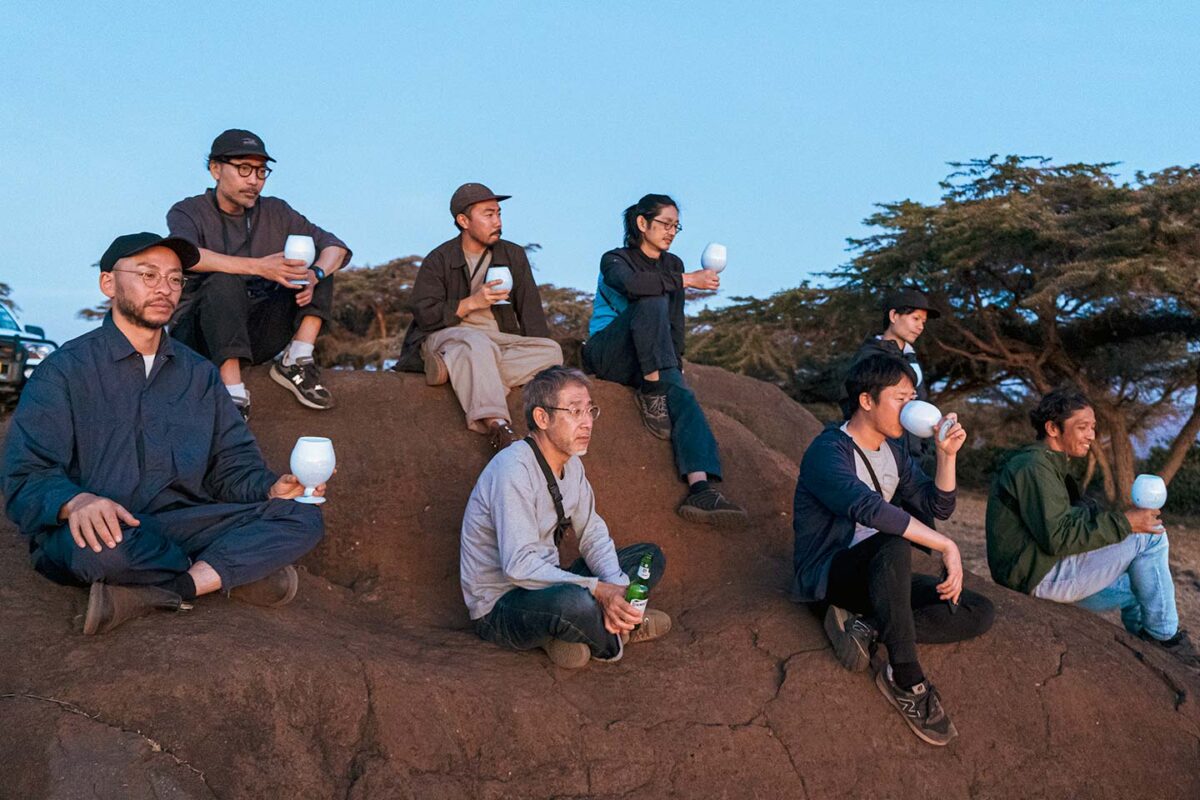
Another stimulating aspect of the trip was traveling with young roasters who were ten or even twenty years younger than myself. They were so willing to work with producers to ensure the continuous production of delicious coffee. Just witnessing their forward-facing attitudes was enough to make me feel a little ashamed that I had only been thinking of coffee as a familiar and tasty product, and had only been focused on improving customer satisfaction.

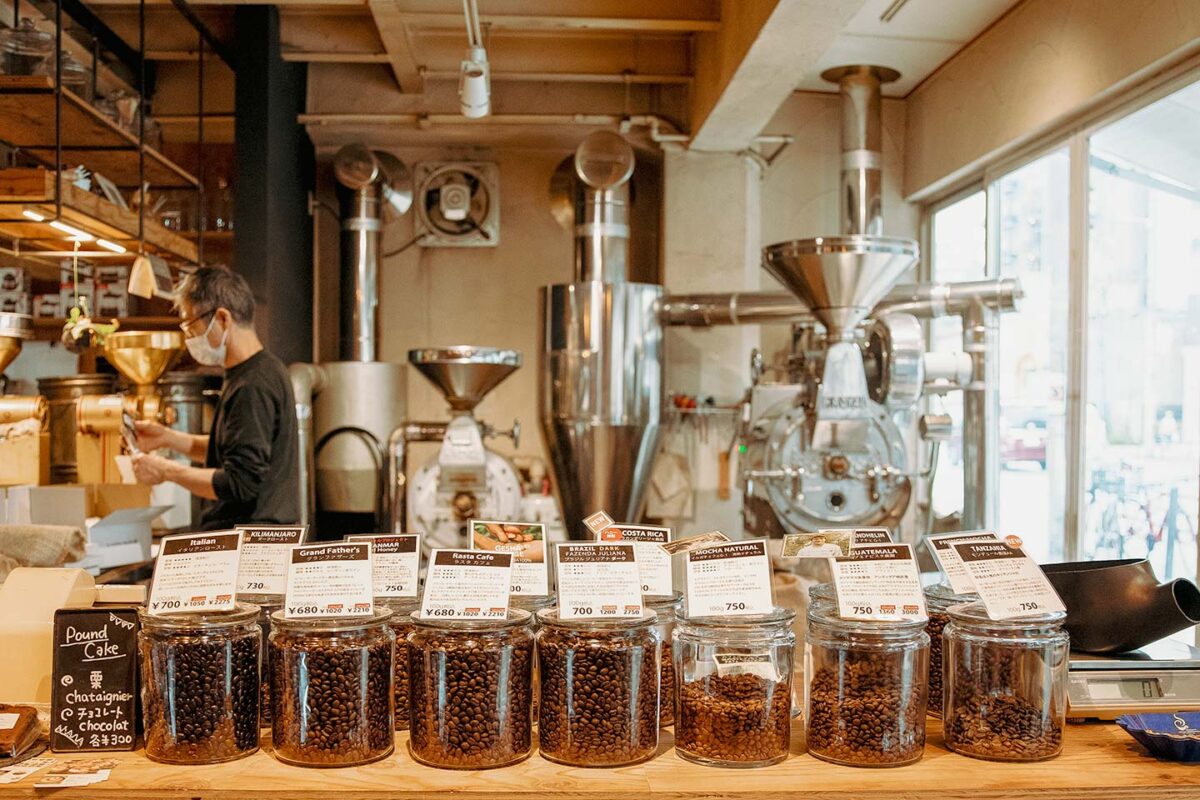
Walking the “thin profit margin” line
I’ve always taken what would be considered to be a “market-oriented” business stance. My policy has been to offer a vast lineup of products that cover differing production areas, values, and flavors in order to meet the needs of my customers.
As many of my customers only buy the same things over and over, I’ve focused on making sure I was offering stable products with reliable flavors. The Tanzanian coffee beans that I’ve been selling for many years have gained enough popularity that people will come in asking for “the beans from Ngorongoro,” so I was debating if I should even venture into buying coffee that was produced outside of the Ngorongoro Conservation Area.
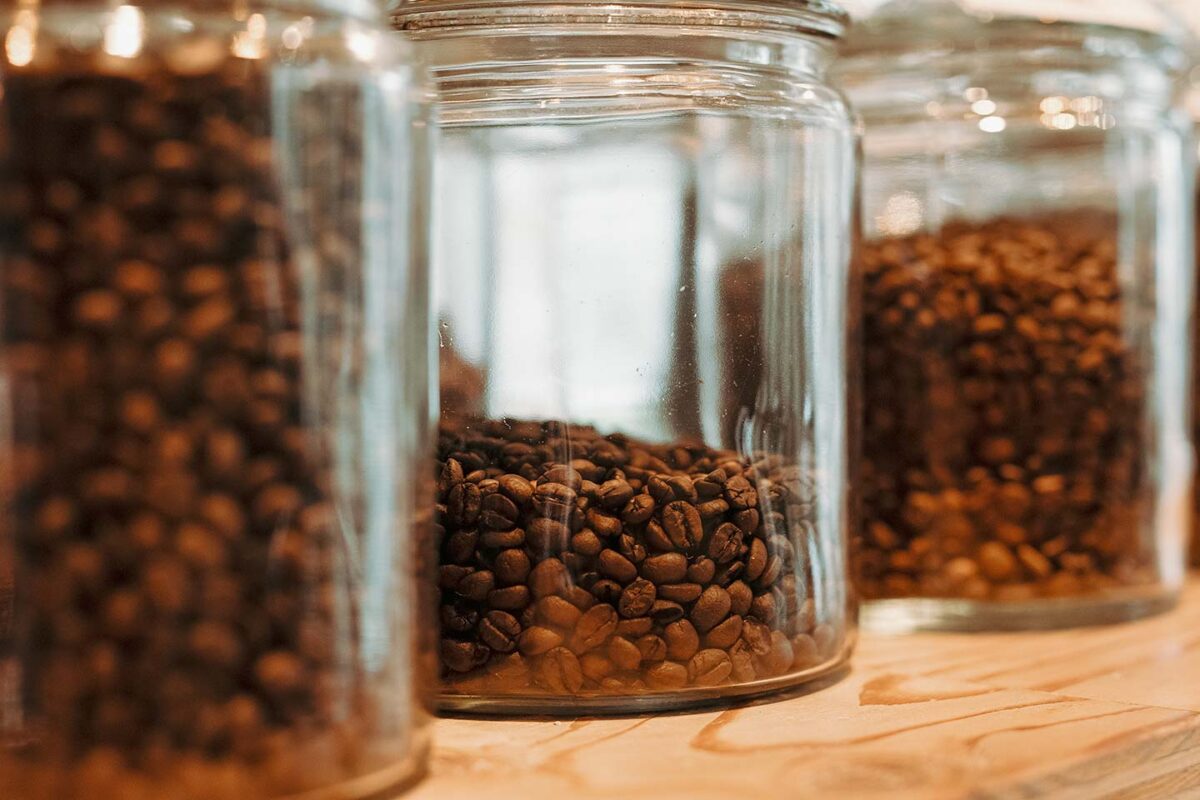
But luckily for me, Leon’s farm happens to also be in Ngorongoro, so I’ll be able to sell a higher quality product without having to change its name. I’m hoping to purchase from him on a consistent basis, and as a result, provide my customers with a better product that is sure to delight them even more.
My business model would probably be considered ultra-thin as I’ve been happy to push myself to the limit if it meant fulfilling my customers’ requests. However, one of my takeaways from this trip was that it’s necessary to ask people to pay a reasonable price for a good-quality product. In order words, it’s important to communicate the appeal of products we wish to promote using a “product-oriented” concept where the belief is “if the product is strong enough, customers will follow.”
To buy many green beans or to buy a smaller amount at a higher price – that is the question. Up until now, I thought the former method was better, but when I heard that coffee farms selling green beans in the volume zone were starting to find themselves in situations where they couldn’t keep going, it made me realize the necessity of rethinking that approach. An undeniable aspect of having thin-profit margins, is that one side, whether it be producer or roaster, will end up having to take a hit.
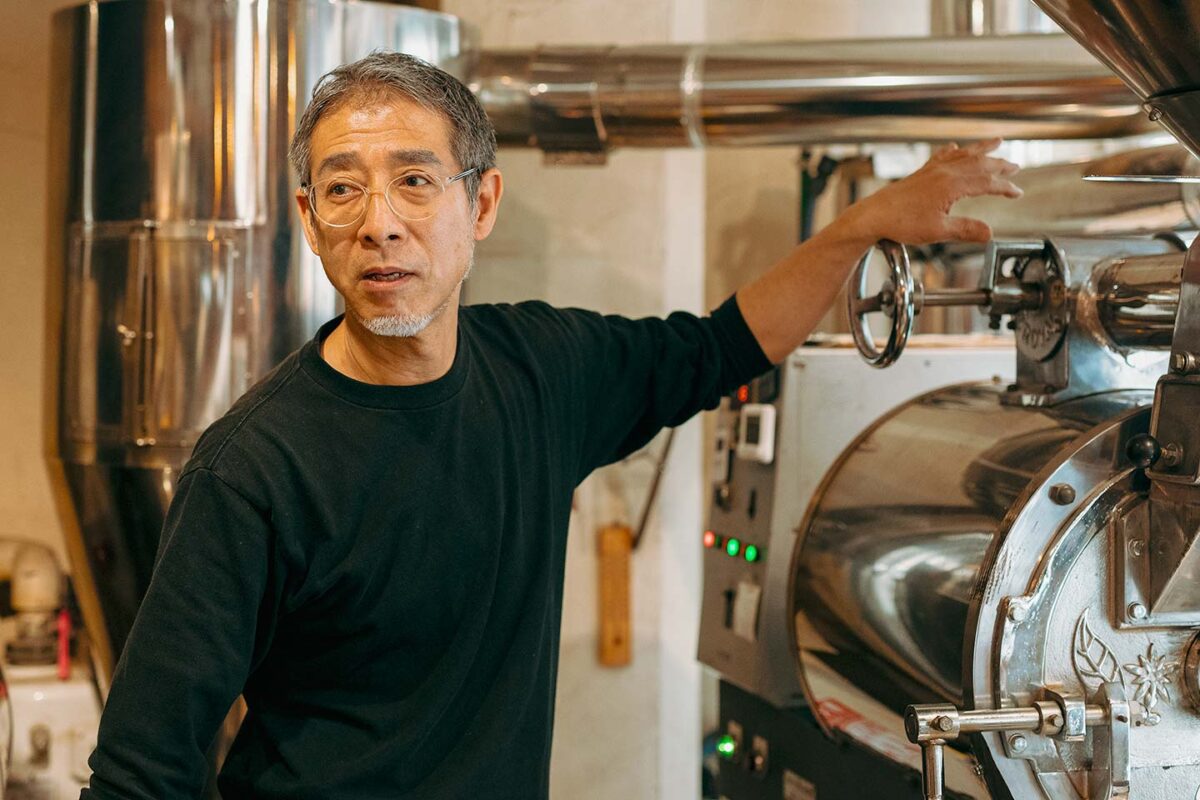
It’s about more than just coffee
One of the reasons I worry so much is that The Coffee Market is no longer just a place for me and my staff to make a living. I can confidently state that I have customers who would seriously be devastated if we ceased to exist – that’s how much they depend us on. I’ve even had customers who’ve moved away from Osaka make sure they stop by in person any time they’re back in the area – and this is after they’ve continued to purchase beans from our roastery online. These conditions make taking a vacation or thinking about packing up shop incredibly hard. I’ve told my staff multiple times, “The Coffee Market may just be a coffee shop, but the contribution we’re making to society can’t be understated.”
I’d like to think we’ve earned this loyalty because our customers have come to recognize and appreciate how hard we work – perhaps we’ve even been a source of inspiration and encouragement to them at times.
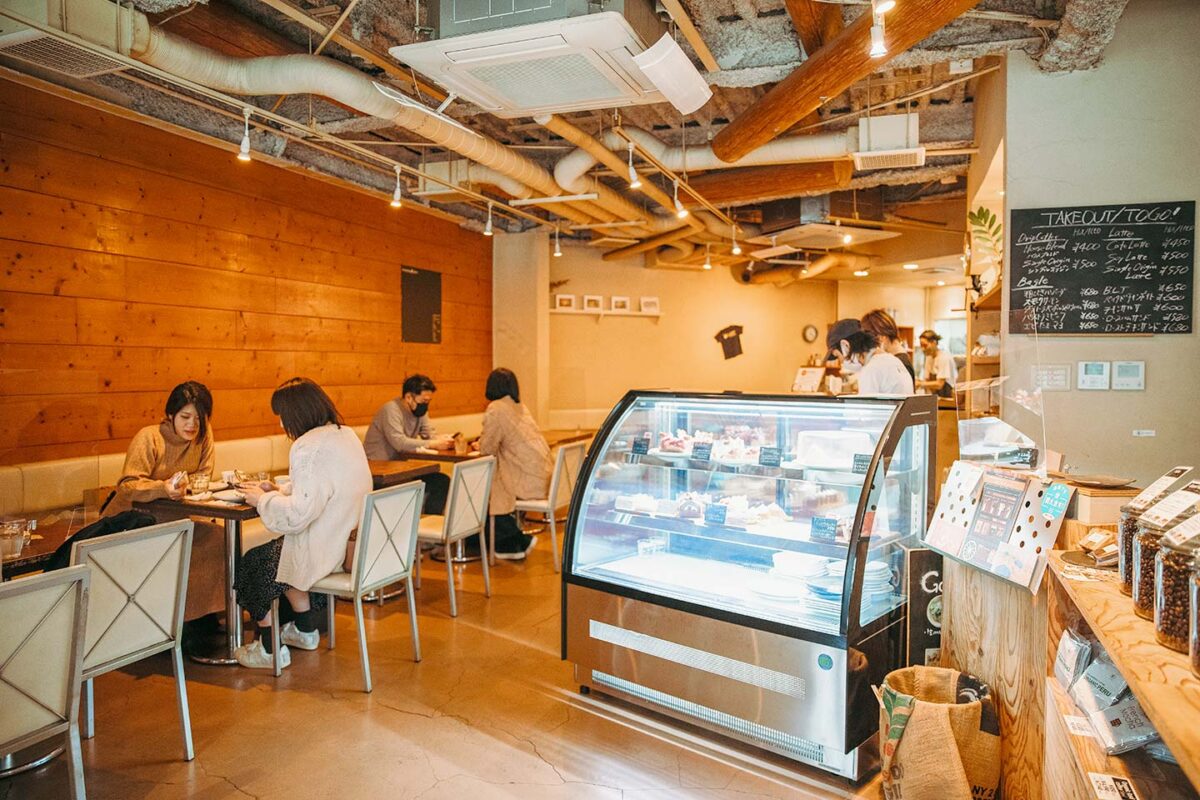
It may sound like a fool’s errand, but I’ve even opened The Coffee Market on days when strong wind warnings were issued due to an approaching typhoon. The few customers who did show up all said something akin to “I knew you’d still be open!” But to us, the fact that people would come see us even in those conditions meant we wanted to stay open until it was literally impossible to operate a minute longer – anything to make the customer happy, am I right? After all, The Coffee Market exists for the sake of our customers, so I want to continue to grow and thrive together.
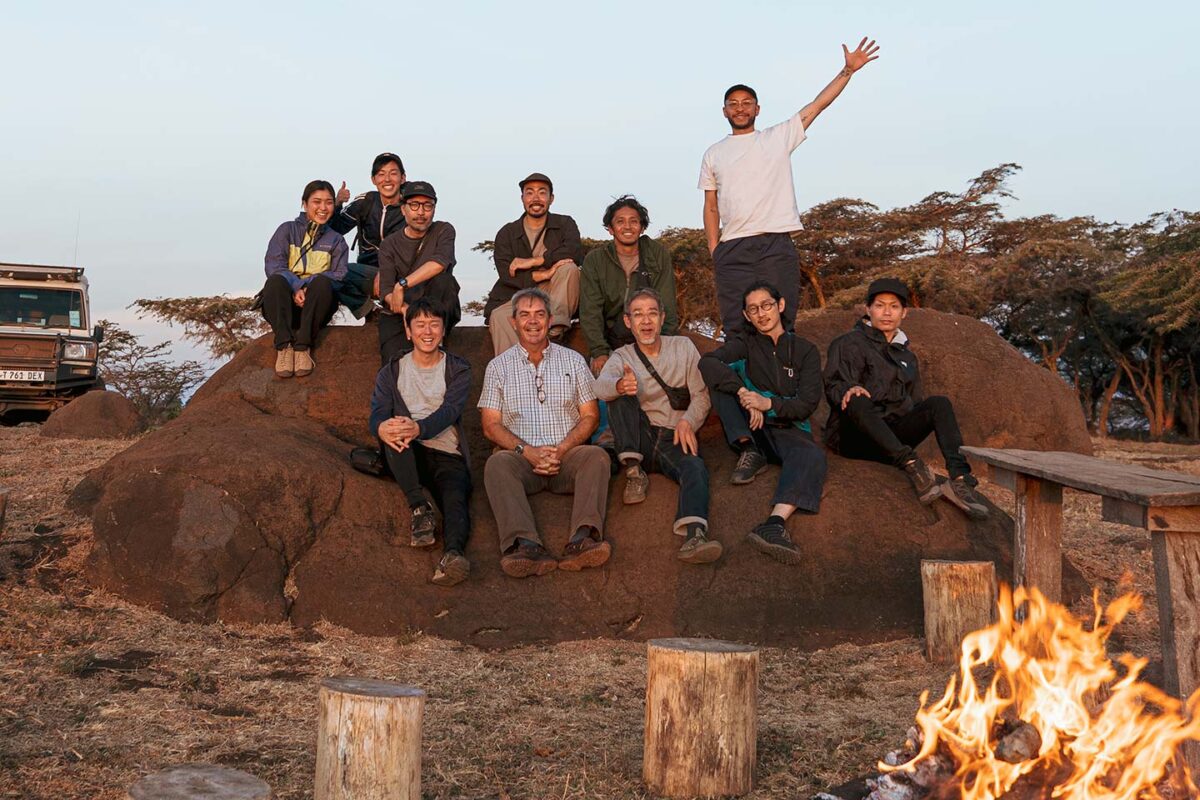
With that being said, there are pros and cons to trying to fulfill the desires of customers at our personal expense. I sometimes wonder if our focus on customer service is going to run my employees ragged, but interestingly enough, the staff I’ve surrounded myself with honestly seem to enjoy going above and beyond for our customers.
I may be getting up there in age, but I don’t feel ready to hang up my hat just yet. Perhaps seeing Leon’s unwavering determination to produce delicious coffee is a big part of why I have so much admiration for him.